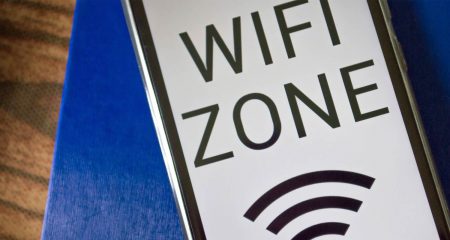
Alan Knott-Craig’s Project Isizwe free Wi-Fi project with the City of Tshwane could “set the pattern for social impact bonds” in South Africa, where the private sector guarantees delivery of services, the public sector guarantees payment, and commercial funding is accessed upfront from the financial markets, a portfolio manager said on Monday.
Kasief Isaacs, portfolio manager for infrastructure investments at Mergence Investment Managers, said social impact bonds are a form of funding that gives service providers, including nonprofit organisations like Project Isizwe, access to upfront resources to tackle social problems by tapping private funding to cover the upfront costs of social programmes approved by government institutions.
Mergence has provided an undisclosed amount of financing to Project Isizwe to accelerate the roll-out of free Wi-Fi in Pretoria. It provides capital to businesses that are aligned with the investment objectives of its institutional clients, Isaacs said. This means investing in projects that have a social impact while also providing a return.
Mergence Investment Managers is a black-owned specialist fund manager founded in 2004 and managing more than R16bn in assets. Its clients are largely institutional, including parastatals, unions and pension funds.
Project Isizwe chief operating officer Zahir Khan said the Mergence investment represents a “key building block” for nonprofit accessing commercial funding from fund managers and the financial markets.
“Over the longer term we could develop a funding and deployment model, in the form of a social impact bond, for similar Wi-Fi projects in other municipalities across South Africa and potentially into the wider African market,” Khan said.
Isaacs said this model could be used to support the national broadband roll-out envisaged by government and Telkom, with fibre as the backbone and municipal Wi-Fi as the “last mile” to consumers.
“The investment allows Isizwe to accelerate the Wi-Fi roll-out by funding the interim outlay of capital necessary to speed up deployment while allowing the flow of money from the municipality to proceed as agreed outcomes are achieved,” he said.
The first phase of the Tshwane free Wi-Fi project was launched in November 2013 with five sites and a capacity of 25 000 users spread across five locations in Soshanguve, Mamelodi and Atteridgeville.
Phase two, with a further 213 sites was launched in mid-2014, while phase three, currently underway, will take the total number of sites to over 600, connecting over 700 000 users.
Tshwane executive mayor Kgosientso Ramokgopa in his state of the capital address on 14 May said the intention was to provide every citizen of Tshwane — potentially 2m people — with free WiFi within walking distance by the end of 2016. — (c) 2015 NewsCentral Media




